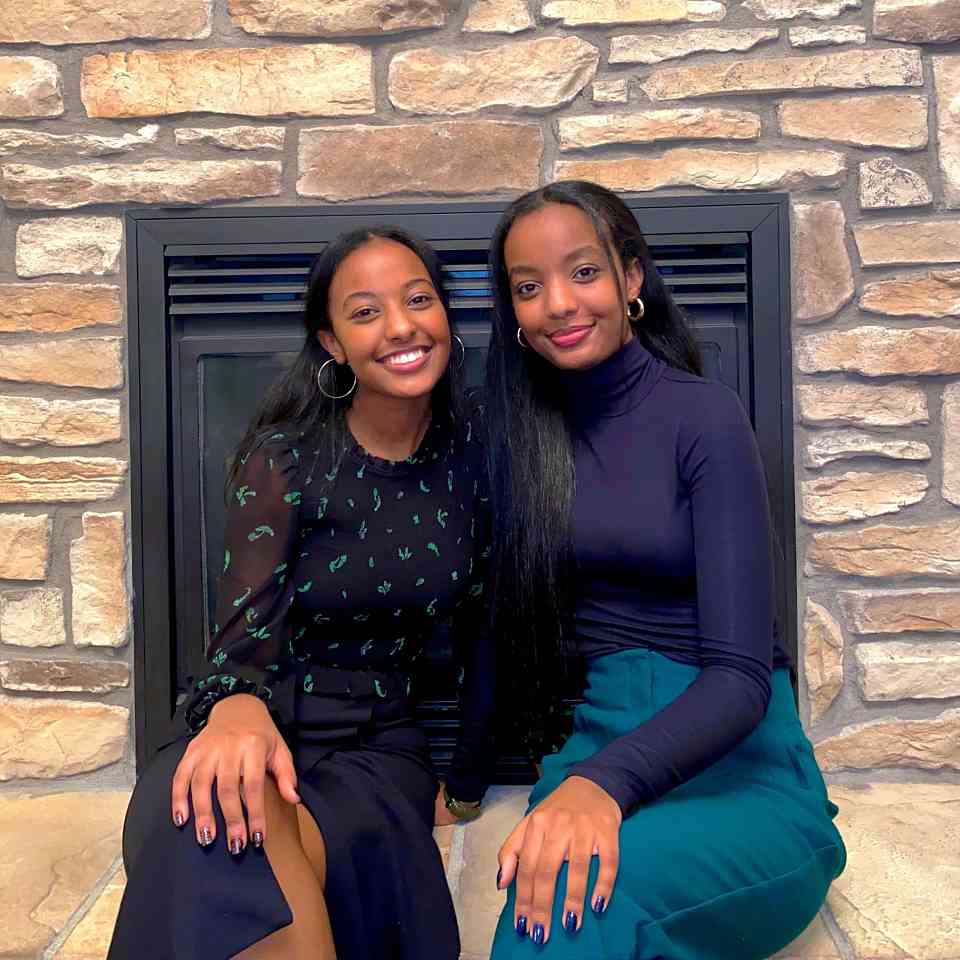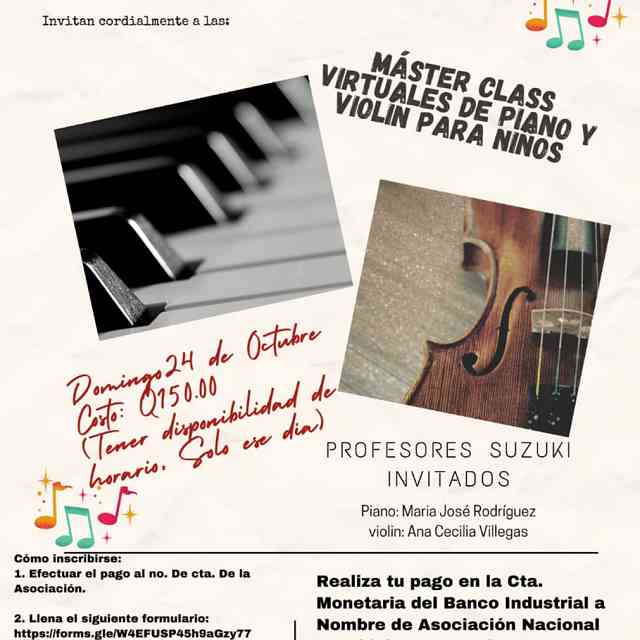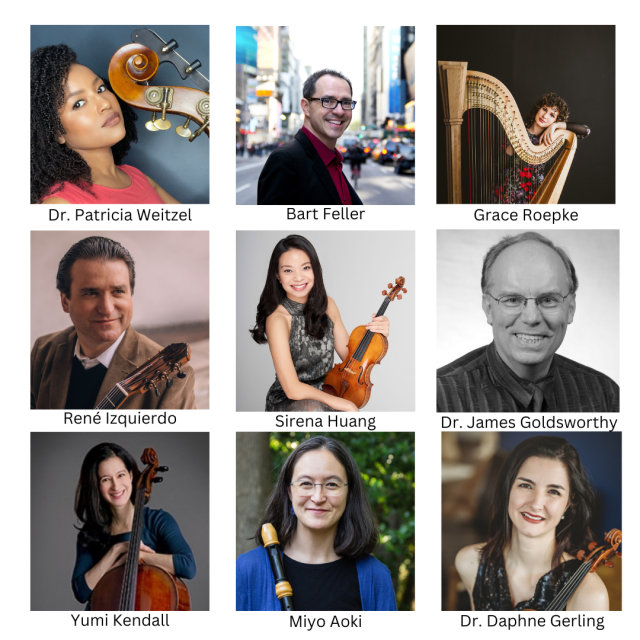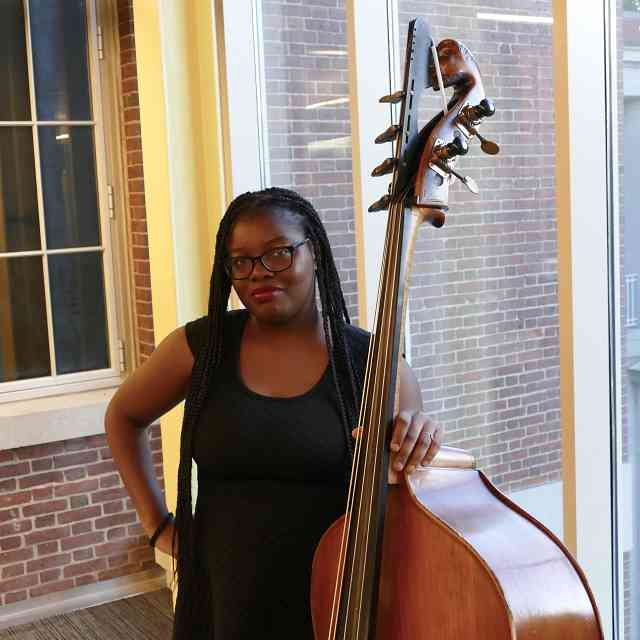
Music education has the potential to be a beautiful asset to all of our lives, yet it continues to be a privilege so few are exposed to. We started our violin and piano studies at the age of four and five, respectively. Our music studies began with an independent private violin teacher before transferring to SuzukiMusic in Ottawa. Beginning group classes, ensembles, recitals, play-ins, and field trips, in addition to private lessons, engaged and empowered us to grow as musicians. It also ignited a sense of excitement for how music could continue to be a part of our lives. Yet, we have always known that formal music training could easily not have been a part of our reality.
As Eritrean-Canadians occupying spaces that normally lack representation, we are constantly working toward combating the gaps and barriers that prevent members of our community from opportunities. Between the both of us, Alador founded a club for her school community, Let’s Start Change, a safe space for students to educate one another and make mistakes with each other. She has also written a letter to her school board educators discussing her perspective as a Black student. After receiving an overwhelming response to her letter, she led a seminar for educators within her school board where she discussed the current gaps within our systems as well as next steps for board members in fostering inclusivity in classrooms board-wide. Sador has developed a mentorship program for marginalized youth interested in STEM as a way of creating accessible opportunities and bridges for the passage of valuable advice from successful professionals and upper-level students. This past year, we ran a workshop with the Suzuki Association of Ontario where we shared our experience as former Black violin students navigating the classical music community and strategies for how Suzuki music schools and educators can become more inclusive and accessible to Black youth.
People often ask us why we advocate for music accessibility. “You’re both Black youth with access to classical music education,” they say, “so why can’t other Black youth do the same?” There are still major strides to be made towards an accessible and inclusive classical music education community for Black youth. Our opinions should not be misconstrued as representing the views of all Suzuki students of color. By sharing our experiences and beliefs, we hope to offer not a one size fits all answer, but some possible solutions that will make music education more accessible for everyone.
The harm in stereotypes
Growing up as some of the only Black string musicians in our music schools, we’ve been exposed to numerous harmful stereotypes. Upon hearing that we are classical musicians, many of our classmates will display a sudden spark of interest paired with confusion. With so few Black violinists in orchestras and showcased on big stages, it becomes difficult to even imagine a talented and accomplished violinist as being Black. As harmful as this underrepresentation is for Black youth potentially interested in studying music, it also propagates a narrow view of the identity of classical music.
At times, navigating the classical music community as a Black musician can mean needing to be mentally ready to receive microaggressions and stereotypes. For example, after hearing us practice, a friend of ours once referred to us as “Black Asians.” Not only did the friend combine two harmful stereotypes in one, but this one comment used our hard work and passions as a tool to strip us of our identity. Students should be encouraged to pursue and flourish all that interests them without questioning if it suits their identity.
The key concerns
It’s a major misconception that the underrepresentation of Black students in classical music comes from poor outreach to Black communities. The issue is deep-seated in the lack of follow-through organizations make when attempting to create meaningful change.
A non-racialized child won’t generally need to consider their identity when asking themselves if they want to study classical music. They often make the choice based on their own interest and passion. Many Black youth don’t even get to the point of considering if they are interested in playing classical music. Instead, they often find themselves questioning if they would even belong in classical music.
Growing up, many young people in our Eritrean community have asked us if there are any other Black musicians in our orchestras. When we answer “no,” nearly everyone responded with, “oh, I could never.” The issue here isn’t that they could never play a string instrument. The issue is that they could never see themselves in this space because of the limited role models, peers, and community members who look like them.
Organizations have attempted to lessen the accessibility issues in their fields, particularly in recent years. Unfortunately, some of them make mistakes like being performative, tokenizing, and only making short-term changes, which can all cause more harm than good.
Impact is extremely important, but we must also consider where our intentions lie. As more and more attention is paid to creating equitable policies and changes, we see these issues being publicized at the forefront of many popular brands and organizations. Our intentions should never be to appear diverse. Rather, our intentions should be based on the needs of those we are aiming to help. Creating equitable change requires an altruistic approach. Reflections, discussions, and efforts toward improving the inclusivity of the Suzuki community must persist with the same momentum at all times—not just when inequalities are in the spotlight. All actions must be sustainable. If not, they are performative.
We have seen organizations, such as Bowed Arts, a recently established Toronto-based music program, clearly show that their intentions lie in the right place. These organizations emphasize that the goal isn’t to appear diverse but to genuinely make music education accessible and inclusive for all youth. This includes breaking down, modifying, and reconstructing foundational components to a music program, studio, or private pedagogical practice.
Representation is essential. Black professionals should lead aspects of an organization or program. There are certain perspectives that people simply cannot learn without having lived through experiences themselves. Leaders can try to learn and empathize, but they will never reach the same level of understanding as someone who has lived it. For that reason, it is dire to have various experiences represented in music program staff and leaders, specifically marginalized voices.
With incorporating Black voices in leadership positions in the Suzuki community, it is also important to ensure that the proper compensation is given for one’s time. This work is emotionally taxing and draining, and without compensation, organizations are profiting off of Black people’s lived experiences.
Next steps: if there’s a gap, fill it
The lack of representation in classical musicians is evident. In the past, our music teachers have shared Youtube recordings of their favorite performances of pieces we were playing. As music teachers, a conscious effort should be made to diversify the selection of artists. There is no doubt that recordings from Joshua Bell, Itzhak Perlman, and Yo-Yo Ma are great sources of inspiration. However, there are numerous talented Black musicians who are wonderful examples as well. We have been inspired by watching videos of Sheku Kanneh Mason, Sanford Allen, Jessie Montgomery, and Esperanza Spalding, to name a few. Sharing these videos will show Black youth that they belong, and will break down stereotypes other students in the studio may have.
Music schools must be mindful of the barriers that prevent students from pursuing classical music and should continue to actively find ways to break down these barriers. One barrier involves the limits to parental engagement due to inflexible commitments such as work. The Suzuki philosophy puts a large emphasis on parental involvement. Fortunately, our mother did not work in the evenings nor did she work weekends, which enabled her to fully commit to supporting us in our music education. However, this is not possible for many parents in the Black community. When trying to create an inclusive environment, it’s important to be mindful that several parents may not have the ability to take notes during lessons due to language barriers or a limited understanding of music. Several parents’ work schedules may not allow them to be at every lesson, group class, ensemble rehearsal, or concert.
Outreach is a crucial piece in educating parents from all socioeconomic communities. This outreach should include the benefits of music education and an in-depth explanation of what it takes to guide a child through music education. Inviting parents should be a central focus of outreach. The goal when reaching out to various communities is to educate them by breaking down what music education entails. Provide them with an accessible handbook that is easy to understand, and be there to ask questions or guide them throughout the process. This can be accomplished through workshops, outreach events, webinars, or community-based activities.
The financial burden that comes with classical music training is not something every parent can take on. Therefore, when reaching out to various communities, it’s important to also advertise financial aid opportunities and share subsidized music programs that allow students to gain access to a music education even with financial barriers.
On websites and social media, Suzuki organizations should be mindful of which holidays they celebrate. Posting happy holiday messages on social media for holidays that are not nationally celebrated will allow for more students to feel seen. Suzuki schools should also make land acknowledgments that specify the Indigenous land that the school resides on.
Lasting impression
It’s important to constantly challenge curriculums, philosophies, and programs that have been put in place for years to make the space more inclusive and accessible for all students. Bettering the spaces we lead doesn’t take a day, a month, or a year. Creating meaningful change is a long-term project that comes with several setbacks. Despite the difficulties, it’s important to recognize the importance of this work. Music education is a beautiful commitment that can better the lives of so many.









